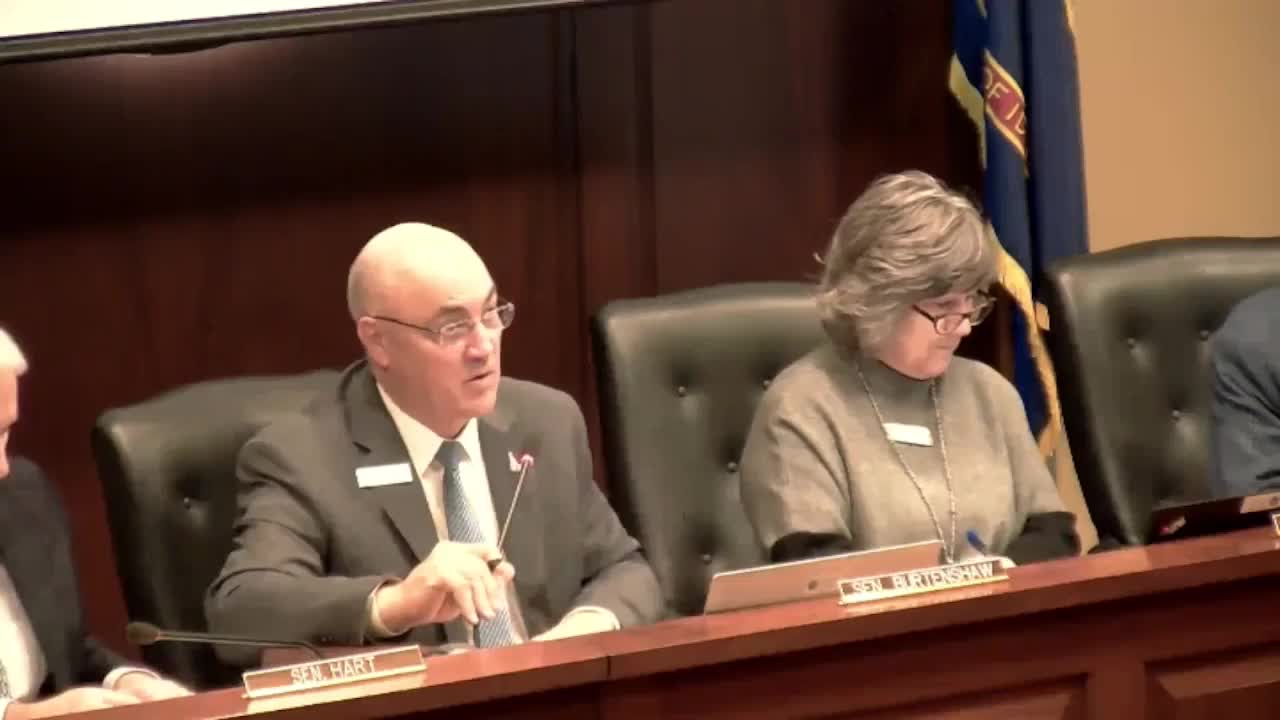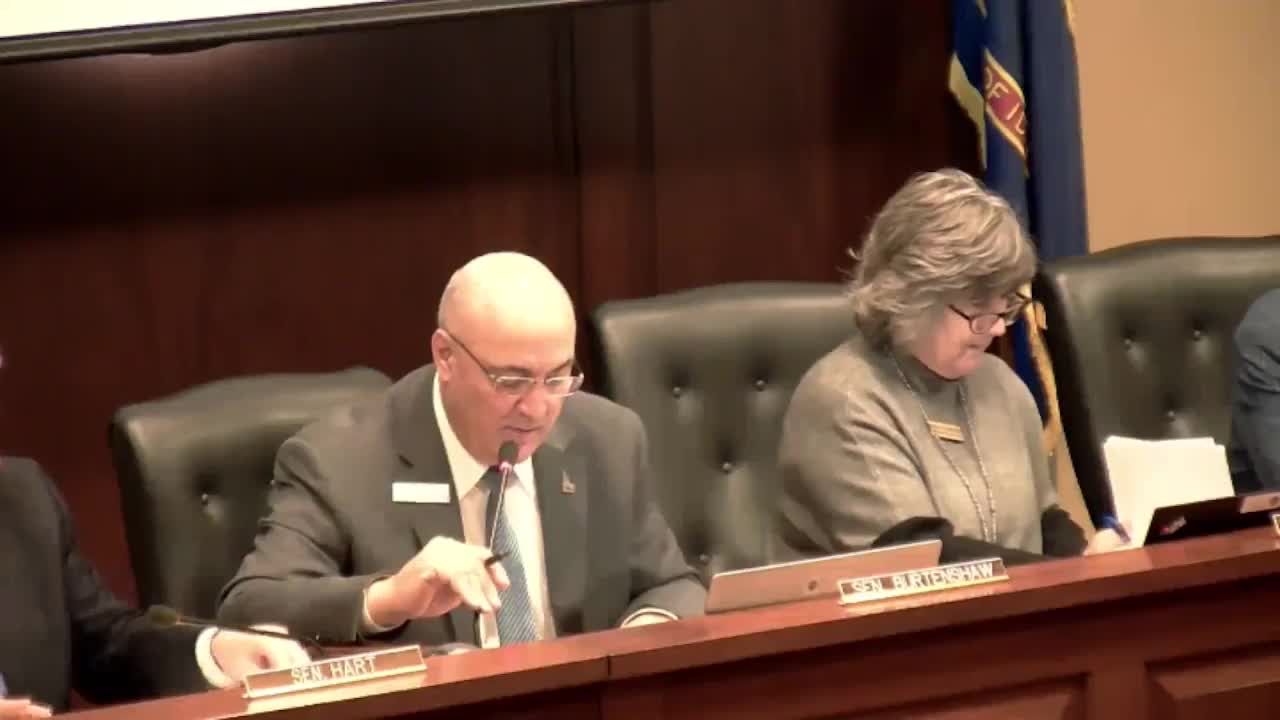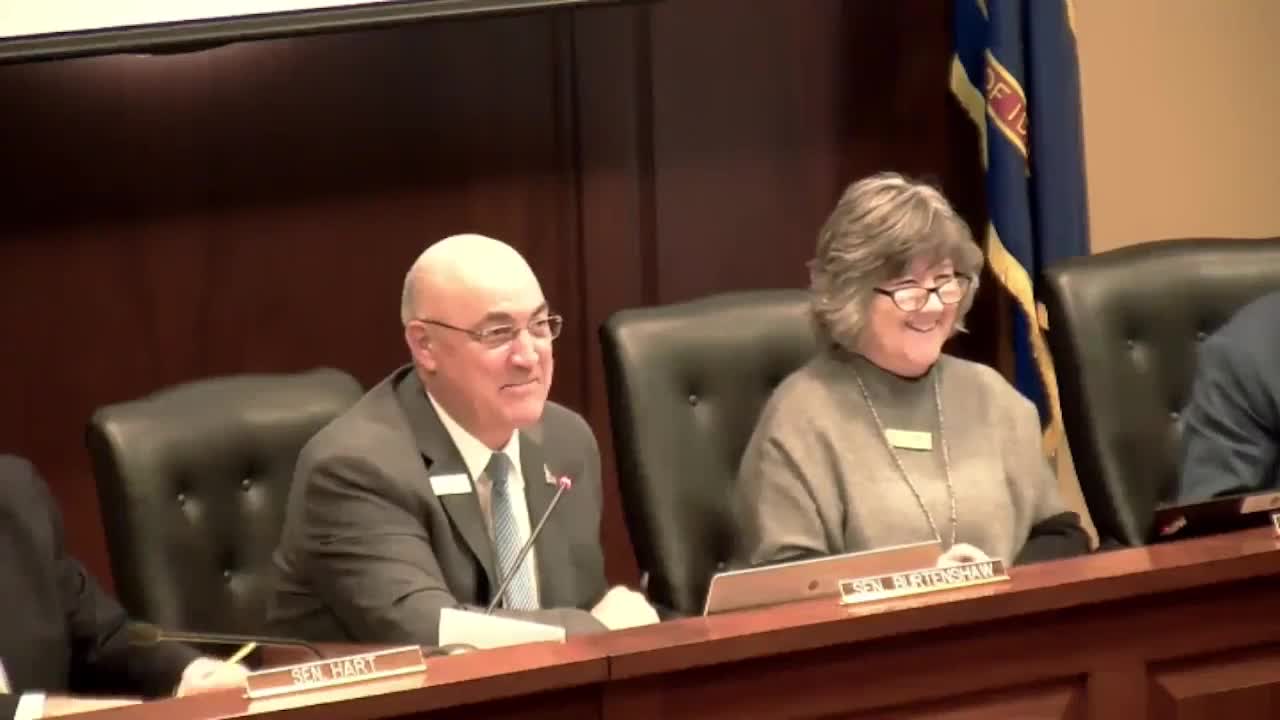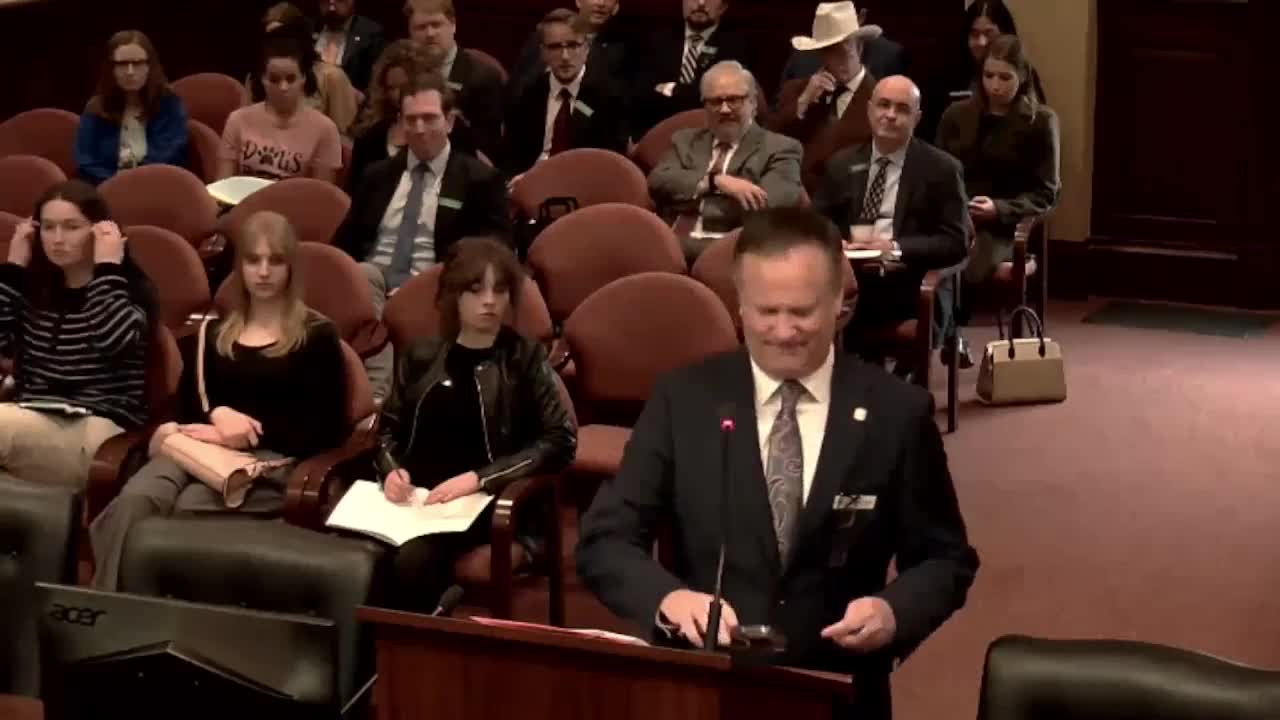Article not found
This article is no longer available. But don't worry—we've gathered other articles that discuss the same topic.

Courtney Liddiard introduced at confirmation hearing for Idaho Parks and Recreation board; vote deferred

Committee approves reappointment to Lake Pend Oreille Basin board; sends nominee to full Senate

Committee approves Fish and Game rule clarifying federal vs. state authorization for take of protected wildlife

